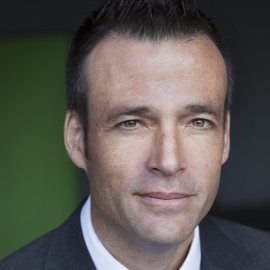Theology, University of Notre-Dame, United-States

Octobre 2016 à Juin 2017
Gabriel Said REYNOLDS researches the Qur'?n and Muslim/Christian relations and is Professor of Islamic Studies and Theology in the Department of Theology at Notre Dame, USA. At Notre Dame he teaches courses on theology, Christian-Muslim Relations, and Islamic Origins. He is the author of The Qur'?n and Its Biblical Subtext (Routledge 2010) and The Emergence of Islam (Fortress, 2012), the translator of ?Abd al-Jabbar’s Critique of Christian Origins (BYU 2008), and editor of The Qur'?n in Its Historical Context (Routledge 2008) and New Perspectives on the Qur'?n: The Qur'?n in Its Historical Context 2 (Routledge 2011). In 2012-13 Prof. Reynolds directed, along with Mehdi Azaiez, “The Qur??n Seminar,” a year-long collaborative project dedicated to encouraging dialogue among scholars of the Qur??n. He is currently Chair of the Executive Board of the International Qur?anic Studies Association (IQSA) and completing a book (Yale Univ. Press) on the Qur?an in the light of Biblical tradition.
"God of Vengeance and Mercy: On the Qur?ans Theology in Relation to Jewish and Christian Tradition"
Much has been made of the rhetoric of the Qur?an on divine retribution. In a number of different chapters (“Suras”), including especially 7, 11, and 26, the Qur?an relates a series of accounts which involve God’s destruction of a people who refuse to listen to the prophets sent to them. The Qur?an in places emphasizes the vengeful nature of God, calling him “the possessor of retribution” (dh? al-intiq?m) and “quick to judge” (sar?? al-?is?b). At the same time the Qur?an also insists that God is merciful and compassionate (al-ra?m?n al-ra??m) and reports that his "mercy encompasses all things" (7:156). In this project, Gabriel Said Reynolds will investigate the juxtaposition of mercy and vengefulness in the Qur?an in the light of pre-Qur?anic Jewish and (especially) Christian literature. He will illustrate how this juxtaposition is not unique to the Qur?an; indeed in Exodus (34:6-7) God is “slow to anger” and yet lets “nothing go unchecked.” Similarly, the Syriac fathers emphasize the mercy of God manifested in the sacrificial act of the crucifixion even as they insist that God will punish those who reject Christ. In his project he will examine the Biblical subtext of the Qur?an which might allow academic scholars today to see the juxtaposition of mercy and vengeance as part of a longer debate which joins together different religious traditions.
REYNOLDS, Gabriel Said. The Qur?an in Conversation with the Bible: Revised Qur?an Translation of Ali Quli Qara?i annotated with Biblical Texts and Commentary by Gabriel Said Reynolds. Under contract with Yale University Press (publication expected 2017).
REYNOLDS, Gabriel Said.The Qur?an Seminar Commentary (editor and contributor). Berlin: De Gruyter, forthcoming.
REYNOLDS, Gabriel Said.The Emergence of Islam. Minneapolis, MN: Fortress Press, 2012. 226 pages. Arabic translation: Nash?? al-Islam. Trans. Sa?d Sa?d? and ?Abd al-Mas?? Sa?d?. Beirut: Dar al-Machreq, forthcoming.
REYNOLDS, Gabriel Said. New Perspectives on the Qur??n: The Qur??n in Its Historical Context 2.Introduced and Edited. London: Routledge, 2011. 536 pages.
REYNOLDS, Gabriel Said.The Qur??n and Its Biblical Subtext. London: Routledge, 2010.304 pages.